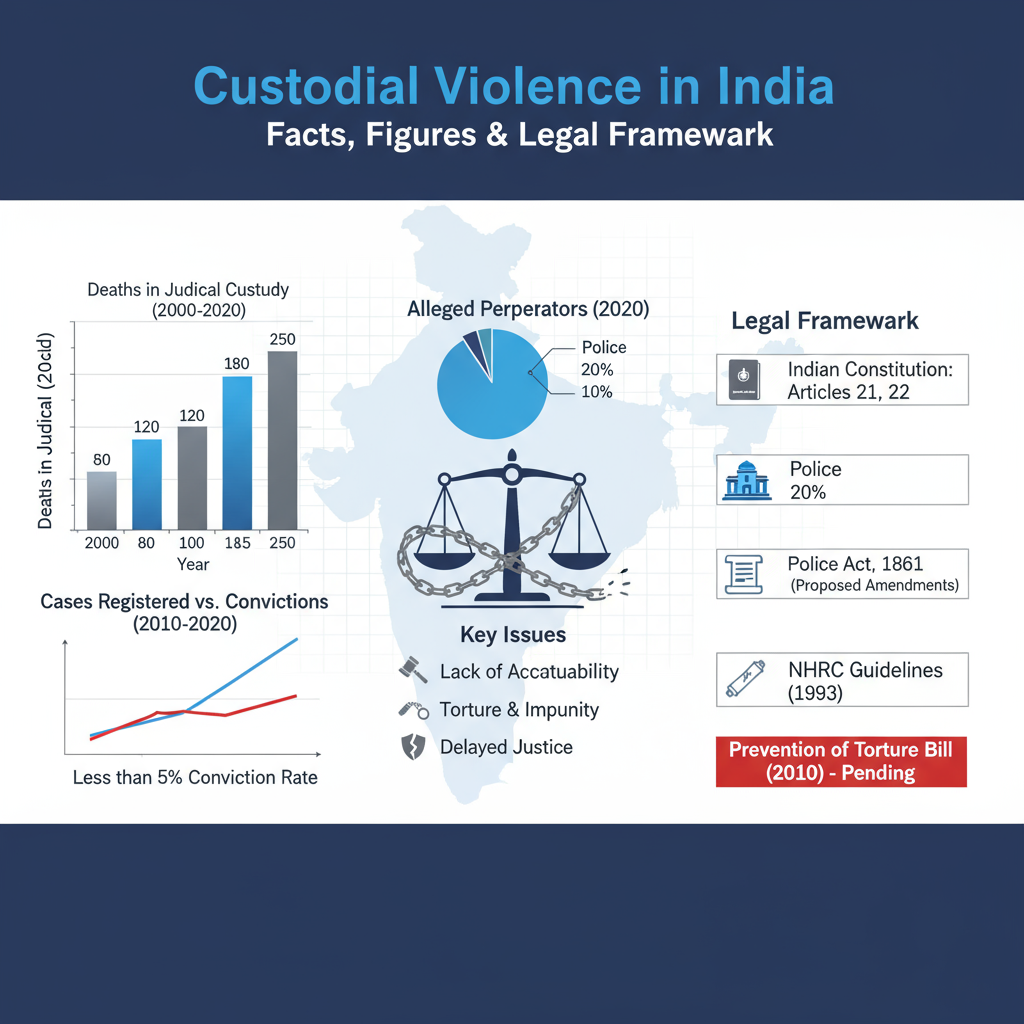Published On: 27th November, 2024
Authored By: Khushi Tiwari
S.S. Khanna Girls Degree college
Facts of the case:
In Shatrughan Chauhan v. Union of India (2014), the Supreme Court addressed the inordinate delays in executing death sentences due to prolonged disposal of mercy petitions, violating Article 21 (right to life and personal liberty). Death row convicts, including Shatrughan Chauhan, argued that the years-long delays caused them extreme mental agony, amounting to inhuman treatment. The petitioners sought commutation of their death sentences to life imprisonment based on these delays and their resulting psychological suffering, including solitary confinement and mental illness.
The Court ruled that undue delays in disposing of mercy petitions are valid grounds for commutation of death sentences to life imprisonment. It held that such delays violate Article 21, subjecting convicts to cruel treatment. They reaffirmed the fundamental rights of death row prisoners and set procedural guidelines to avoid future delays, ensuring the humane treatment of death row inmates under the law.[1]
Legal Issue:
The key legal issue in Shatrughan Chauhan v. Union of India (2014) centers on whether inordinate delays in the disposal of mercy petitions could justify the commutation of death sentences to life imprisonment. The petitioners, including Shatrughan Chauhan, argued that prolonged delays in deciding their mercy petitions subjected them to severe mental anguish, amounting to a violation of their right to life and personal liberty under Article 21 of the Indian Constitution.
The case also raised questions about whether conditions such as mental illness, insanity, and solitary confinement, experienced by death row convicts as a result of these delays, could be grounds for commutation. Additionally, the Court had to consider whether such delays amounted to cruel and inhuman treatment, which is constitutionally prohibited. The Supreme Court’s decision involved examining whether these factors, particularly the delay in executing death sentences, violated the prisoners’ fundamental rights and warranted relief through the commutation of their sentences.[2]
Argument:
Appellants–
In Shatrughan Chauhan v. Union of India (2014), the appellants, including Shatrughan Chauhan and other death row convicts, raised several arguments challenging the prolonged delays in the disposal of their mercy petitions. Their primary contention was that the inordinate delay in the rejection of their mercy petitions, often spanning several years, caused severe mental agony, trauma, and suffering. This delay, they argued, amounted to cruel and inhuman treatment, which violated their right to life and personal liberty guaranteed under Article 21 of the Indian Constitution.
The appellants further argued that the delay in executing their death sentences subjected them to prolonged periods of uncertainty, solitary confinement, and mental distress, contributing to the deterioration of their mental health. They claimed that the uncertainty surrounding their execution date led to a form of psychological torture, which should not be imposed on any human being, regardless of the crime committed.
Additionally, the appellants asserted that mental illness or insanity, caused by the long delays, should be recognized as a valid ground for commuting their death sentences to life imprisonment. They argued that the delay itself was unjust, and arbitrary, and amounted to a failure of due process, necessitating the commutation of their death sentences to uphold their fundamental rights.[3]
Respondent –
In Shatrughan Chauhan v. Union of India
(2014), the respondents, including the Union of India, argued against the commutation of death sentences on the grounds of delayed disposal of mercy petitions. They contended that the delay in processing mercy petitions was not excessive or unreasonable, and such delays are often due to the complexity of the cases, the need for a thorough examination, and the multiple layers of scrutiny involved in the decision-making process at both state and national levels.
The respondents also maintained that the process of considering mercy petitions requires careful attention to various factors, including the nature of the crime, the conduct of the convict, and the impact on the victims’ families. They argued that these considerations are essential to ensure a fair decision and cannot be rushed.
Additionally, the respondents contended that mental illness or deterioration in mental health due to the delay could not be automatically attributed to the delay itself but could have existed. They also argued that the severity of the crime for which the convicts were sentenced to death should not be overlooked, and that granting commutation solely due to delays would undermine the seriousness of capital punishment and the justice system’s response to heinous crimes.[4]
Judgment:
In Shatrughan Chauhan v. Union of India (2014), the Supreme Court of India ruled that **inordinate delays in the disposal of mercy petitions could indeed be grounds for commuting death sentences to life imprisonment. The Court held that prolonged delays, which subjected death row convicts to severe mental agony and uncertainty, amounted to cruel and inhuman treatment that violated their right to life and personal liberty under Article 21 of the Indian Constitution.
The Court recognized that such delays in deciding mercy petitions, combined with the psychological stress and suffering endured by the convicts, constituted a violation of their fundamental rights. Consequently, it ordered the commutation of death sentences for the petitioners to life imprisonment.
Additionally, the Court established procedural guidelines to prevent future delays in the disposal of mercy petitions. These guidelines aimed to ensure a timely and fair process, thereby safeguarding the rights of death row inmates and upholding the principles of justice and human dignity. The judgment reinforced the necessity for a humane approach in the execution of death penalties and addressed the broader implications of prolonged legal uncertainty.[5]
Reasoning:
In Shatrughan Chauhan v. Union of India (2014), the Supreme Court’s reasoning centered on the violation of Article 21 of the Indian Constitution, which guarantees the right to life and personal liberty. The Court recognized that inordinate delays in disposing of mercy petitions inflicted significant mental agony and suffering on death row convicts, equating this treatment to cruel and inhuman punishment.
The Court noted that prolonged delays in execution caused convicts to endure an extended period of psychological torment and uncertainty about their fate. This uncertainty and the adverse psychological effects constituted a violation of their right to a dignified life, even for those sentenced to death. The Court found that the mental distress and psychological impact of such delays were unacceptable, as they breached the principles of humane treatment and justice.
Additionally, the Court emphasized that a fair and timely process is essential in upholding constitutional rights and ensuring justice. By commuting the death sentence to life imprisonment, the Court aimed to rectify the violation and reinforce procedural safeguards to prevent similar delays in the future. This approach underscored the need to balance the legal process with humane treatment standards.[6]
Conclusion:
In Shatrughan Chauhan v. Union of India (2014), the Supreme Court concluded that inordinate delays in the disposal of mercy petitions constitute a violation of the right to life and personal liberty under Article 21 of the Indian Constitution. The Court acknowledged that such delays subjected death row convicts to extreme mental anguish and uncertainty, which amounted to cruel and inhuman treatment.
The judgment underscored that the prolonged period of psychological torment endured by convicts due to delayed executions compromised their dignity and right to a fair process. By commuting the death sentence to life imprisonment, the Court sought to address this violation and provide relief to those affected.
The ruling also established procedural guidelines to ensure the timely disposal of mercy petitions, aiming to prevent future delays and uphold the principles of justice and humane treatment. This decision reinforced the importance of balancing legal procedures with the protection of fundamental human rights, setting a precedent for how delays in the death penalty process should be managed in accordance with constitutional values and human dignity.
Reference:
1. Supreme Court of India Judgment: Shatrughan Chauhan v. Union of India, (2014) 3 SCC 1. Available at: Supreme Court of India
2. Academic Analysis: S. S. Sharma, “Human Rights and Death Penalty: An Analysis of Shatrughan Chauhan Case,” Journal of Indian Law Institute, 56(2), 2014, pp. 235-250.
3. Legal News Articles: Legal News India, “Shatrughan Chauhan Case: Supreme Court’s Landmark Judgment on Death Penalty Delays,” Legal Times, September 2014.




